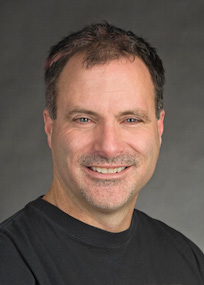Self-Identified vampires subject of study by ISU Professor DJ Williams; Working with people with alternate identities can be challenging to clinicians
July 7, 2015
POCATELLO – Encountering a self-identified vampire can pose challenges for clinicians in the helping professions such as social work, counseling or medical fields.
“We live in an age of technology and live in a time when people can select new, alternate identities to fit how they understand themselves better,” said DJ Williams, Idaho State University associate professor of social work. “We really need to understand some of these new identities and new ways to identify ourselves, and some of these new identities do not fit into stereotypes. Helping professionals of all varieties need more education on these kinds of topics.”
 Williams, along with co-author Emily Prior of the Center for Positive Sexuality in Los Angeles, recently published the study “Do We Always Practice What We Preach? Real Vampires’ Fears of Coming out of the Coffin to Social Workers and Helping Professionals” in the journal Critical Social Work, an interdisciplinary journal devoted to social justice.
Williams, along with co-author Emily Prior of the Center for Positive Sexuality in Los Angeles, recently published the study “Do We Always Practice What We Preach? Real Vampires’ Fears of Coming out of the Coffin to Social Workers and Helping Professionals” in the journal Critical Social Work, an interdisciplinary journal devoted to social justice.
“The gist of the article is that self-identified vampires are probably more common than most people realize,” Williams said. “A lot of people probably assume they are younger kids or young people who watch ‘Twilight’ or other pop-culture types of things. Yet, the real vampire community, which is self-defined by people who claim the need for extra energy (either blood or psychic energy), tend not to fit that demographic stereotype.”
Self-identified vampires say they have different energy needs than other people and that they may be distinguished based on the different sources of energy from which they “feed,” Williams said. Despite having an alternate lifestyle, Williams said that it is important for counselors and others in the helping professions to treat them without prejudice.
“People with alternative identities have the same set of issues that everybody has,” Williams said. “People of all kinds sometimes struggle with relationship issues or have a death in family or struggles with career and job-type issues. Some of these people with alternate identities may come to a therapist with these issues, and if clinicians are open and educated about this group they should be able to help the individual much better.”
He said that the self-identified vampires interviewed for this study “without exception” were very fearful about approaching clinicians. They did not want to be judged as being wicked or evil or viewed as being psychotic, delusional or having a psychological problem.
“This is a study with a specific alternative identity but it also relates to a larger issue that we are moving into as we are seeing more alternative identities and practices,” Williams said. “In our codes of ethics, and this is true of social work, counseling, psychology and medicine, we talk about being open and non-judgmental and to try to understand a client’s world and context. This study explored the world and context of self-proclaimed vampires. A lot of clinicians are still not willing to accept these types of studies or are not aware of them.”
Williams’ study can be viewed in its entirety at www1.uwindsor.ca/criticalsocialwork/Vampires.
Categories:
